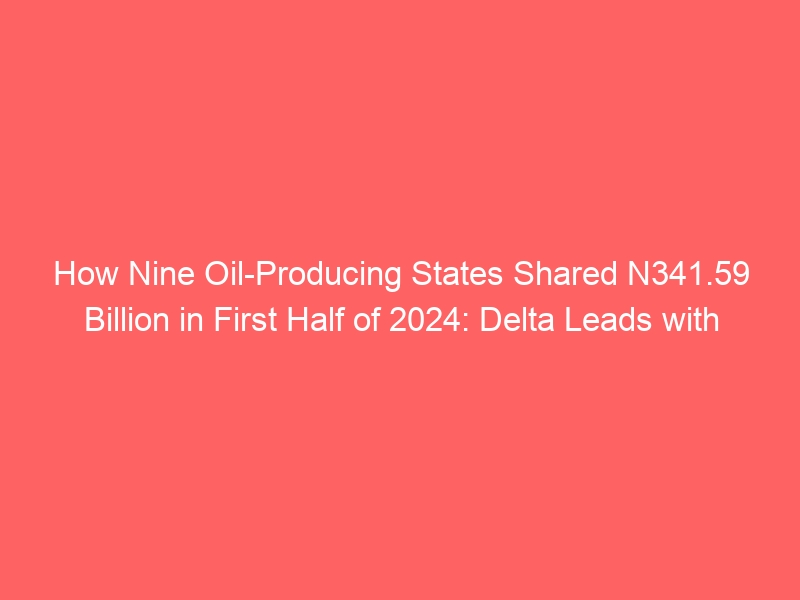The nine oil-producing states in Nigeria received a total of N341.59 billion from the federation account in the first half of 2024, distributed under the 13 percent derivation formula. This revenue-sharing mechanism, implemented by the Federation Account Allocation Committee (FAAC), ensures that states where natural resources like oil and gas are extracted receive a portion of the country’s revenue.
Rooted in Section 162 (2) of the Nigerian Constitution, the 13 percent derivation formula mandates that 13 percent of the revenue generated from natural resources is paid directly to the producing states. This financial boost is critical for these states, supporting infrastructure development and social programs in the oil-producing regions.
Data released by the National Bureau of Statistics (NBS) reveals that Delta State received the highest allocation, amounting to N113.78 billion, which accounts for 33 percent of the total disbursement. Delta’s significant share underscores its leading role in Nigeria’s oil production.
Following Delta, Akwa Ibom received N70.01 billion, representing 20 percent of the total funds disbursed. Bayelsa and Rivers also received substantial allocations, with N64.04 billion and N58.78 billion, respectively.
The other states that benefited from the derivation fund include Edo (N11.90 billion), Ondo (N10.05 billion), Imo (N5.72 billion), Anambra (N4.13 billion), and Abia (N3.19 billion).
GbaramatuVoice Commentary: Accountability and the Reality on the Ground
Despite these substantial allocations, there is no single visible effect on the lives of the people in these oil-producing states. The billions disbursed have not translated into improved living conditions. Many communities continue to suffer from a lack of basic amenities such as potable drinking water, electricity, and hospitals. The grim reality is that, despite the vast wealth generated from these regions, many of the states are still grappling with extreme poverty and underdevelopment.
This glaring disconnect between the funds received and the living conditions of the people demands urgent attention. The people, especially those in the oil-producing communities, must wake up and hold their governors accountable for how these 13 percent derivation monies are being utilized. It’s crucial to ask what has been done with the funds so far and to demand transparency and tangible improvements in infrastructure, healthcare, education, and other essential services.
As these funds continue to flow into the states, there must be a concerted effort to ensure they are used effectively to address the critical needs of the people and to finally lift these regions out of the cycle of poverty and neglect.












